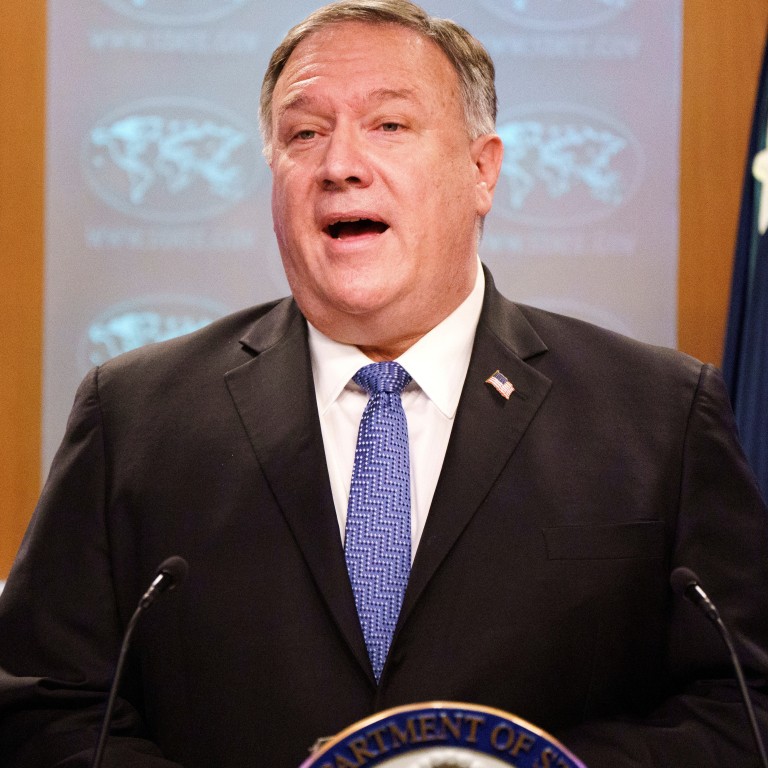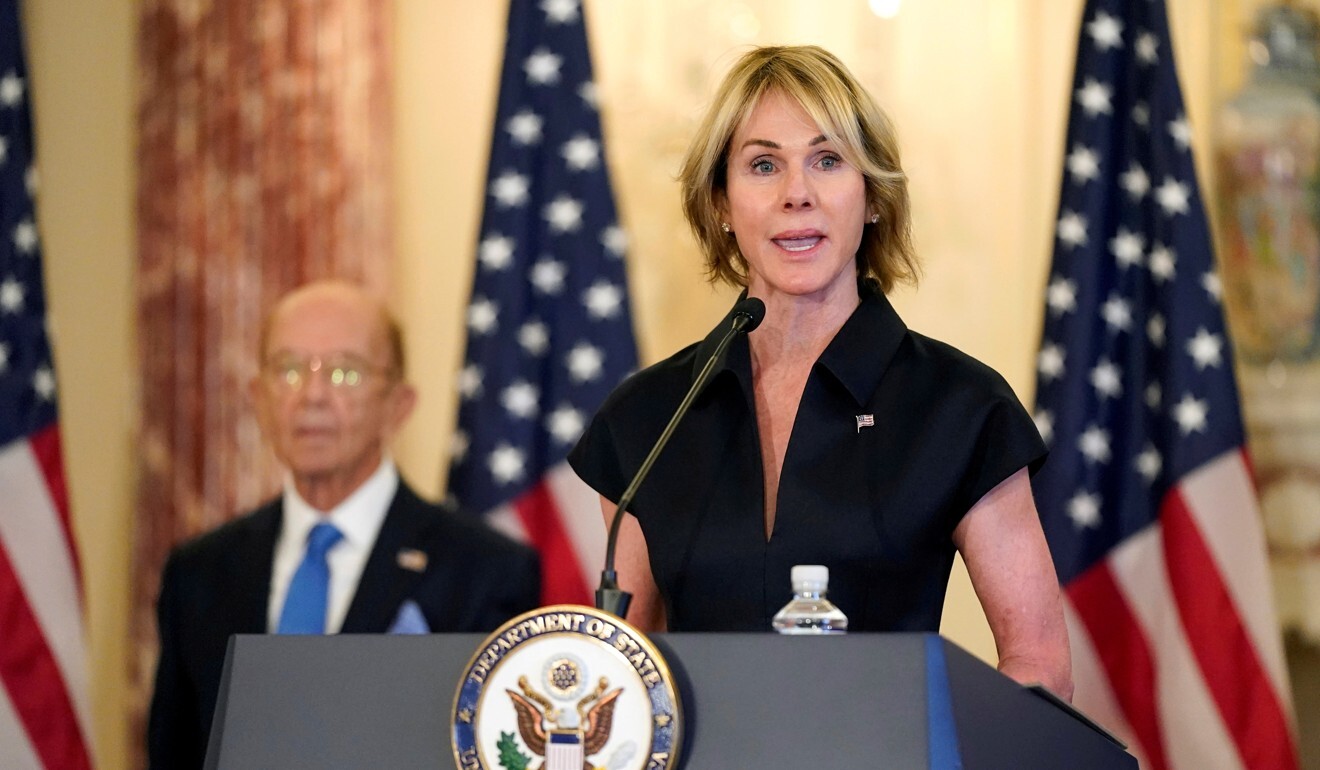
Pompeo calls restrictions on official contacts with Taiwan ‘null and void’, in swipe at Beijing
- Pompeo’s order allows US government to conduct official engagements with Taipei through the American Institute in Taiwan (AIT)
- The non-profit AIT has traditionally played a low-key role to avoid disputes with Beijing
The US government will lift its internal restrictions on how American officials may interact with their Taiwanese government counterparts, Secretary of State Mike Pompeo announced on Saturday, the latest move by the outgoing Trump administration seeking to bolster Washington’s relationship with Taipei.
“Taiwan is a vibrant democracy and reliable partner of the United States, and yet for several decades the State Department has created complex internal restrictions to regulate our diplomats, service members, and other officials’ interactions with their Taiwanese counterparts,” Pompeo said in a statement.
“Today I am announcing that I am lifting all of these self-imposed restrictions,” he said, calling them “null and void”. He added that the US government had originally put them in place “in an attempt to appease the Communist regime in Beijing”.
One rule that may be changed: the State Department’s foreign service manual says that US government officials may not use their official passports when travelling “to, from, or through” Taiwan, because the US does not have official diplomatic relations with Taipei.
US ambassador to United Nations will visit Taiwan, Pompeo says
The State Department did not immediately respond to questions seeking to clarify how this rule change would affect US officials travelling to Taiwan, as senior Trump administration officials have already travelled to the self-ruled island in recent months, and another plans to travel there next week.
On Thursday, the Trump administration announced that its ambassador to the United Nations, Kelly Craft, would be travelling to Taipei to meet with senior Taiwanese leaders from January 13 to 15.
Azar was the highest-ranking US government official to visit Taiwan since 1979, the year Washington switched its diplomatic recognition from Taipei to Beijing.

Beijing has repeatedly warned Washington to stop any official contact and cut off all military ties with Taiwan – the US is the democratically ruled island’s major arms supplier and it is bound by law to help defend it. As a result, the AIT has stayed as low-key as possible to avoid disputes between Washington and Beijing.
Bi-khim Hsiao, who heads the Taipei Economic and Cultural Representative Office (Tecro) in Washington, called Pompeo’s announcement “a huge day in our bilateral relationship”.
“Decades of discrimination, removed,” Hsiao said, adding: “I will cherish every opportunity.”
As US-China relations have plummeted in recent years, the Trump administration has sought to bolster its ties with Taipei at the same time, including multiple arms sales.
China should stay calm if Trump makes sudden last moves, analysts say
In 2018, President Trump signed the Taiwan Travel Act into law, which says it should be US policy to allow officials at all levels to travel to Taiwan to meet their Taiwanese counterparts. The law passed both chambers of Congress with no opposition.
Pompeo also said that going forward, relations between the executive branch of the US government and Taiwan will now be handled by the American Institute in Taiwan (AIT), the de facto US embassy in Taipei. Pompeo said this change is already stipulated by law in the Taiwan Relations Act.
It was not immediately clear how this change would affect future high-level government exchanges. A round of economic talks between the Trump administration and Taiwanese officials in November was arranged jointly by AIT and Tecro.
“The United States government maintains relationships with unofficial partners around the world, and Taiwan is no exception,” Pompeo said.

